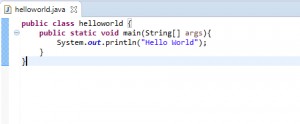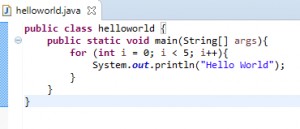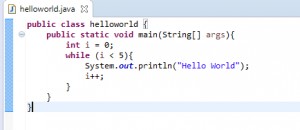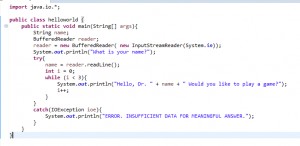--Originally published at Hell Yeah
I am currently in the last few hours before the end of the Object-Oriented Programming course, taught by Ken Bauer, with whom I happen to share birthday.
This course was made in such a way that I never saw before. The learning was left almost entirely to us, Ken was more of a guide than a teacher, and I think that was a great way to structure it.
In terms of learning, I went in with little to no knowledge of Java. Object-Oriented Programming in general was an area almost completely unknown to me. With the problems that Ken “assigned” and a few on my own, I was able to learn more about how Java works and why OOP is often used instead of Imperative Programming. Not all of it was practice, the videos that we watched offered interesting perspectives on the theorical side of OOP, along with the opinions of people far above us in knowledge of this topic.
I also learned to use a little of Eclipse, a tool that is used a lot in Java programming. It is, as Ken said at the beginning of the course, a Titan of a program. It has a lot of things that I have no idea what they do or why they are there, but the things I learned to use, I found that were extremely complex but not unnecesarily. What it does, it does not do in a half-assed way, but it can be overwhelming at times.
Also, Github. I have had my Github account for ~2 years, not knowing what it was. I saw on /r/learnprogramming again and again that having a Github account is essential in this line of work, but I never really understood why. Now, I still have a lot to learn and understand about it, hell, I can’t use the terminal commands for git without a guide open in another window, but I know why it is important and what it can do. Github is really the best way to store public code and to manage big projects on a team. It also serves as a kinda-portfolio that gives a testimony of what you know and what you’ve done before.
Talking about the structure of the class, it was a bit “Laissez-faire”. Ken just guided us in the direction we should be going and helped us when we had trouble, but this class did not hold our hand. We were expected to learn on our own and to do our own research about the challenges we faced. I really liked this and I would chose it over the traditional way anytime.
o7
















